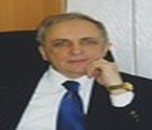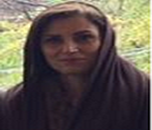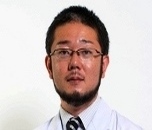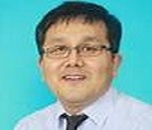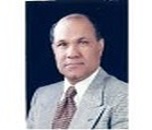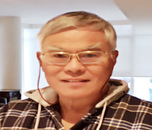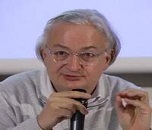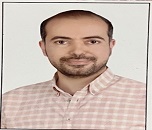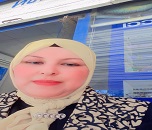
Dementia 2023

Theme: Advancement research and its findings in Dementia
Dementia 2023 is welcoming you to the 4th International Conference on Dementia and Dementia Care which is going to be held on December 04-05, 2023 in Dubai, UAE with the theme “Advancement research and its findings in Dementia”. Dementia 2023 is going to gather all the renowned scientists, junior research fellows, professors, students, leading neurologists & psychiatrists, members of different psychiatric associations, and medicine and medical technology companies related to Dementia under a single roof for these two days to showcase the developments and future direction.
Session 1: Dementia Care Management
Caring for a person with dementia influences distinctive people in diverse ways. In any case, caring can also be both physically and rationally debilitating. It affects all factors of your life and may have an impact on you to feel separated, driven, and in instances even discouraged. You may additionally have your own physical and psychological well-being needs, which you and others may additionally neglect while you are tending to some other person. There are severe high-quality things about caring.
Dementia Conferences | Dementia Care Conferences | Vascular Dementia Conferences | Alzheimer Conferences | Neuroscience Conferences | Neurology Conferences
Session 2: Vascular Dementia
Early-stage vascular dementia slightly resembles Alzheimer’s, although instead of being primarily characterized by forgetfulness, it is more associated with difficulty planning, decision-making, and following steps. Other early symptoms include slower speed of thought, difficulty maintaining focus, and increased likelihood of experiencing anxiety, depression, and mood swings. Following one or more strokes, Vascular dementia may also include physical symptoms such as vision or speech problems and weakness in limbs, although these symptoms might show improvement with rehabilitation.
Dementia Conferences | Dementia Care Conferences | Vascular Dementia Conferences | Alzheimer Conferences | Neuroscience Conferences | Neurology Conferences
Session 3: Mild Cognitive Impairment (MCI)
Mild cognitive impairment (MCI) is a condition in which someone has minor problems with cognition - their mental abilities such as memory or thinking. In MCI these difficulties are worse than would normally be expected for a healthy person of their age. However, the symptoms are not severe enough to interfere significantly with daily life, and so are not defined as dementia.
It is estimated that between 5 and 20% of people aged over 65 have MCI. It is not a type of dementia, but a person with MCI is more likely to go on to develop dementia. This page explains what MCI is, the link between MCI and dementia, and the benefits of diagnosing MCI. It then looks at treatments for MCI, ways to cope with the symptoms, and how you can reduce your risk of developing MCI and dementia. Many people who are diagnosed with MCI use this as an opportunity to change their lifestyle for the better. There is a lot that someone can do to help reduce their chances of MCI progressing to dementia.
Dementia Conferences | Dementia Care Conferences | Vascular Dementia Conferences | Alzheimer Conferences | Neuroscience Conferences | Neurology Conferences
Session 4: Dementia with Lewy Bodies (LBD)
Lewy body dementia can also look a little like Alzheimer’s in the early stage, although there are some key differences. In the early stage of Dementia with Lewy bodies (LBD), the individual’s attention and awareness can fluctuate greatly from day to day, or even from moment to moment. Many also have recurrent visual hallucinations that they are able to describe in vivid detail, and some have auditory hallucinations as well. Sometimes these can lead to faulty perceptions and delusions of persecution.
Dementia Conferences | Dementia Care Conferences | Vascular Dementia Conferences | Alzheimer Conferences | Neuroscience Conferences | Neurology Conferences
Session 5: Huntington's Disease
A defect in a single gene causes Huntington’s disease. It’s considered an autosomal dominant disorder. This means that one copy of the abnormal gene is enough to cause the disease. If one of your parents has this genetic defect, you have a 50 percent chance of inheriting it. You can also pass it on to your children.
The genetic mutation responsible for Huntington’s disease is different from many other mutations. There isn’t a substitution or a missing section in the gene. Instead, there is a copying error. An area within the gene is copied too many times. The number of repeated copies tends to increase with each generation.
Dementia Conferences | Dementia Care Conferences | Vascular Dementia Conferences | Alzheimer Conferences | Neuroscience Conferences | Neurology Conferences
Session 6: Alzheimer’s Disease
Dementia is the term applied to a group of symptoms that negatively impact memory, but Alzheimer’s is a progressive disease of the brain that slowly causes impairment in memory and cognitive function. The exact cause is unknown and no cure is available.
The National Institute of Health estimates that more than 5 million people in the United States have Alzheimer’s disease. Although younger people can and do get Alzheimer’s, the symptoms generally begin after age 60.
The time from diagnosis to death can be as little as three years in people over 80 years old. However, it can be much longer for younger people.
Dementia Conferences | Dementia Care Conferences | Vascular Dementia Conferences | Alzheimer Conferences | Neuroscience Conferences | Neurology Conferences
Session 6: Parkinson’s Disease
Parkinson-type motor skills problems (e.g. slowness, stiffness, tremors) are also common in people with dementia with Lewy Bodies (LBD) and are often present at the time of diagnosis.
Dementia Conferences | Dementia Care Conferences | Vascular Dementia Conferences | Alzheimer Conferences | Neuroscience Conferences | Neurology Conferences
Session 7:Semantic Dementia
Semantic dementia refers to a progressive loss of the ability to remember the meaning of words, faces and objects, which results from shrinkage of the temporal lobes of the brain. However, there is wide variation in the speed of progression. Some people show little decline over the course of a year whereas others change more quickly. Usually, monitoring a person’s progress over a year will give a good guide as to the likely future rate of progression.
Dementia Conferences | Dementia Care Conferences | Vascular Dementia Conferences | Alzheimer Conferences | Neuroscience Conferences | Neurology Conferences
Session 8: Frontotemporal Dementia
The early stage of Frontotemporal dementia has different symptoms as memory and cognitive functioning are relatively spared. Behavioral variant frontotemporal dementia (bvFTD) primarily influences individuals’ behaviors and emotions. Common behavioral changes include becoming uncharacteristically selfish, apathetic, and uninhibited. Over-eating can also be a problem.
Individuals with bvFTD might act impulsively and inappropriately in social situations, disregarding manners. There are two other less common forms of frontotemporal dementia with different initial symptoms. Semantic dementia primarily affects the ability to recall names and understand language, and progressive non-fluent aphasia affects individuals’ abilities to produce fluent speech.
Dementia Conferences | Dementia Care Conferences | Vascular Dementia Conferences | Alzheimer Conferences | Neuroscience Conferences | Neurology Conferences
Session 9: Dementia Nursing
People with vascular dementia have distinct mental element shortfalls that incorporate each reminiscence hindrance, that impacts the adaptability to find out new statistics or review facts already learned, and one or greater of the ensuing aspect outcomes aphasia, apraxia, agonise, or reputable brokenness to such an extent that the mental detail shortages adversely affect social or action working with a chief decrease in beyond abilities. Furthermore, human beings with dementia commonly enjoy the ill consequences of comorbid situations that more confuse thoughts and block best results.
Dementia Conferences | Dementia Care Conferences | Vascular Dementia Conferences | Alzheimer Conferences | Neuroscience Conferences | Neurology Conferences
Session 10: Dementia Treatment
In some cases, treating the condition that causes dementia may help. Conditions most likely to respond to treatment include dementia due to:
• drugs
• tumors
• metabolic disorders
• hypoglycemia
In most cases, dementia isn’t reversible. However, many forms are treatable. The right medication can help manage dementia. Treatments for dementia will depend on the cause.
Dementia Conferences | Dementia Care Conferences | Vascular Dementia Conferences | Alzheimer Conferences | Neuroscience Conferences | Neurology Conferences
Session 11: Bioinformatics Approach for Dementia
Bioinformatics advent can be used to regulate and evaluate data from the current high-throughput research technologies and render means for novel discoveries in the field of neurodegenerative diseases. It is reported that there is very little published data on epigenomics. It is said that the data are obtained from high throughput technologies in the screening of the human brain. These data intend the upcoming researchers to know and design their experiments. Data Mining plays an important role in the prediction of the disorder, where the actual data is compared with the real data and the results are interpreted. The Transcriptomics and Proteomics studies have also been carried out providing necessary solutions for the problems.
Dementia Conferences | Dementia Care Conferences | Vascular Dementia Conferences | Alzheimer Conferences | Neuroscience Conferences | Neurology Conferences
The global dementia drugs market was valued at approximately USD 13,459.39 million in 2021, with a CAGR of 8.28% over the forecast period (2022 - 2027).
The outbreak of the COVID-19 pandemic is expected to have a considerable impact on the dementia drugs market. According to a study titled, “The effects of the COVID-19 pandemic on people with dementia”, published in the National Library of Medicine, in January 2021, the population with dementia is at high risk of contracting COVID-19 infection as the cognitive symptoms cause difficulty to abide by the safety guidelines that were proposed to contain the viral spread. The study also stated that have a comparatively high chance of developing a serious COVID-19 infection and are also at risk of neuropsychiatric disorders as a result of lockdown procedures and social exclusion, in 2020. Likewise, as per a study titled “Covid-19 and the quality of life of people with dementia and their carers—The TFD-C19 study”, published in PubMed.gov, in January 2022, COVID-19 placed unprecedented pressure on dementia health and social care systems worldwide. This has resulted in reduced services and support for people with dementia and their family carers.
The factors that are propelling the market growth are the increasing prevalence of target diseases, the introduction of new and innovative technologies and drugs, and increased government funding and awareness programs for dementia.
The increased government funding and awareness programs are the major factors driving the market growth. For instance, as per a February 2022 update, a new initiative by McGill University’s Dementia Education Program is among the 15 projects that will receive funding from the Public Health Agency of Canada to raise awareness of dementia and promote dementia-inclusive communities. Additionally, in October 2021, the Government of Kerala, India, launched the Dementia-Friendly District program, 'Udbodh'. This program was undertaken in cooperation with the NeuroScience department at Cochin University of Science and Technology, the Ernakulam district administration, and Kochi Municipal Corporation. Moreover, in January 2021, LSP, the leading European life sciences investor, launched the LSP Dementia Fund, a fund dedicated to combating neurodegenerative diseases. Such initiatives will boost the awareness of dementia drugs, thereby contributing to market growth.
However, the high failure rates of drugs at approval stages are expected to impede the market growth over the forecast period.
Global Universities:
- University of Salford
- University of Bradford
- University of Cardiff
- University of Nottingham
- University of Sheffield
- Loughborough University
- University of Worcester
- University College London
- Leeds Beckett University
- Lancaster University
- Bangor University
Research Centers of Dementia:
1. Alzheimer’s Drug Discovery Foundation.
2. The Alzheimer’s Foundation of America.
3. The Alzheimer’s Association International Research Grant Program.
4. Banner Alzheimer’s Initiative.
5. Coins for Alzheimer’s Research.
6. Cure Alzheimer’s FundAlzheimer’s Society (UK).
7. Fisher Center for Alzheimer’s Research.
8. Geoffrey Beene Foundation Alzheimer’s Initiative.
9. National Alzheimer’s Coordinating Center (NACC).
10. National Cell Repository for Alzheimer’s Disease (NCRAD).
11. John’s Hopkins School of Medicine Alzheimer’s Disease Research Center.
12. Mayo Clinical Alzheimer’s Disease Research Center.
13. University of Pennsylvania Alzheimer’s Disease Center.
14. Yale University Alzheimer’s Disease Research Unit.
15. Mount Sinai School of Medicine Alzheimer’s Disease Research Center.
16. University of Kansas Alzheimer’s Disease Center.
17. The Taub Institute for Research on Alzheimer’s Disease.
18. University of Wisconsin Alzheimer’s Disease Center.
19. Boston University Alzheimer’s Disease Center.
20. Arizona Alzheimer’s Disease Center/Sun Health Research Institute.
21. Oregon Health and Science University Aging and Alzheimer’s Disease Center.
22. Alzheimer’s Disease Research Center University of California.
23. Washington University at St. Louis. Alzheimer’s Disease Research Center.
24. University of Washington Alzheimer’s Research Center.
25. Emory University Alzheimer’s Disease Center.
26. University of Pittsburgh Alzheimer’s Disease Research.
27. New York University Center of Excellence on Brain Aging.
28. Harvard Medical School Alzheimer’s Disease Research Center.
29. Indiana University Alzheimer's Disease Center.
30. Rush University Medical Center Alzheimer’s Disease Center.
31. University of California – Davis, Alzheimer’s Disease Center.
32. University of Kentucky Alzheimer’s Disease Center.
Future Scope:
The Annals of Alzheimer's and Dementia Care is one of the peer-reviewed, international and distinguished journals, which covers the outstanding and most updated research works peak quality papers. It provides consistent information to update online viewers with the adapted methods and latest advancements in the field of Alzheimer's and Dementia Care. All contributions shall be rigorously refereed and selected on the basis of the quality and originality of the work as well as the breadth of interest to readers.
This clinical journal which publishes comprehensive reviews, research articles, short reports, information on clinical trials, media reviews, open-peer commentaries or in-depth perspectives, translational and/or theoretical papers that attempt integrate knowledge across discipline, politics & history of science/brief biographies, abstracts of papers presented at international meetings, and negative results, particularly clinical trials, as short communications in the results of studies in behavior management, brain research, genetics, psychiatry, molecular biology, pharmacology, sociology, protein chemistry, physiology, neuropathology, neurology, biochemistry, geriatrics, neuropsychology, epidemiology, health services research, political science, health economics, caregiving, communication strategies, evaluation, heredity, long-term care, memory loss, pharmacotherapy, psychosocial issues, recreation and activity therapy, restraint-free care, special care units, symptom management, and public policy. Content emphasizes interdisciplinary investigations, integrative/translational articles, related to risk factors, early detection, etiology, and disease-modifying interventions, prevention of dementia, and applications of new technologies in health services.
It includes information on the management of concurrent medical issues in the patient with dementia, New and forthcoming diagnostic tools such as computerized testing for mild cognitive impairment and other aspects of cognitive testing, as well as high technology resources for sophisticated disease characterization. It also provides information on the clinical features and management of non-Alzheimer's dementias.
Meetings International is announcing the Young Scientist Awards through the 4th International Conference on Dementia and Dementia Care (Dementia 2023) which is scheduled on December 04-05, 2023 in Dubai, UAE. This Dementia conference focuses on “Advancement research and its findings in Dementia”. Dementia 2023 and upcoming conferences will recognize participants who have significantly added value to the scientific community of Psychiatry science and provide them with outstanding Young Scientist Awards. The Young Scientist Award will provide a strong professional development opportunity for young researchers by meeting experts to exchange and share their experiences at our international conferences. Dementia 2023 focuses mainly on Dementia, Dementia Care Management, Vascular Dementia, Mild Cognitive Impairment (MCI), Dementia with Lewy Bodies (LBD), Huntington's Disease, Alzheimer’s Disease, and Parkinson’s Disease. The dementia conference operating committee is providing a platform for all the budding young researchers, young investigators, post-graduate/Master's students, Ph.D. students, and trainees to showcase their research and innovation.
Eligibility: Young Scientists, faculty members, post-doctoral fellows, Ph.D. scholars, and bright Final Year MSc and M.Phil. candidates. Persons from Scientific Industry can also participate.
Benefits: The Young Scientist Feature is a platform to promote young researchers in their respective areas by giving them a chance to present their achievements and future perspectives.
· Acknowledgement as YRF Awardee
· Promotion on the conference website, Young Researcher Awards, and certificates.
· Link on the conference website
· Recognition on Meetings Int. Award Page
· Chances to coordinate with partners around the world
· Research work can be published in the relevant journal without any publication fee
Criteria:
· All presented abstracts will automatically be considered for the Award.
· All the presentations will be evaluated in the conference venue
· All the awards will be selected by the judges of the award category
· The winners of the Young Scientist Award will receive an award certificate.
Guidelines:
· All submissions must be in English.
· The topic must fit into the scientific sessions of the conference
· Each individual participant is allowed to submit maximum 2 papers
· Abstract must be submitted online as per the given abstract template
· Abstracts must be written in Times New Roman and font size will be 12
· Abstract must contain title, name, affiliation, country, speaker’s biography, recent photograph, image, and reference.
Conditions of Acceptance:
To receive the award, the awardee must submit the presentation for which the award is given, for publication on the website, along with author permission. Failure to submit the PPT and permission within the designated timeframe will result in forfeiture of the award.
Award Announcements:
The official announcement of the recipients will occur after the completion of the Dementia Conference.
4th International Conference on Dementia and Dementia Care to inform and attract new customers quickly and efficiently. The size and diversity of our advertising options, including banners, sponsored emails, article alerts, or newsletters, provide clients with the very best customized marketing opportunities in science and medicine. We are one of the renowned event organizing platforms with most of the eminent speakers and business audiences from all over the globe indexed. The advertising platform we provide you is the best chance of showcasing your products/services, and brand your company. If you are looking for global exposure for your products and services, this is the right place for you. With over 5 million readers worldwide and nearly 3 million hits a month on our website, we have an engaged audience of students, research scholars, scientists, doctors, professors, pharmacists, and professionals from companies across the domains. If you sell research materials, products, psychiatry medicine, instruments, or service like rehabilitation centers, here is your opportunity to advertise on the website that can connect you to leading experts and science specialists across the Globe. Advertisement banners must be provided in high-resolution jpg or jpeg format by the advertising company and must not have copyright infringement. We can also support your events and conferences by providing you with high-quality reprints of published articles that can add value to your event.
You can also connect us via WhatsApp: +65-3158-1626
Meetings International has taken an initiative to felicitate attendees with awards to recognise, celebrate and encourage achievement in its various conferences and events. We salute and acknowledge attainment within an industry that is continuously evolving and re-drawing the boundaries of best practices. These awards represent the pinnacle of professional achievement for event professionals. To win an award you will have been endorsed by our illustrious panel of the foremost industry professionals which is a sure-fire signifier of your formidable credentials.
Outstanding Speaker in Dementia 2023: This award recognizes academic and business speakers for their excellent presentation skills and for the significant contribution in Dementias that they make to their professions, their teams, and their patients through their practice, leadership, or research endeavour. The recipient of this award will be chosen by the session chair and co-chair. The awardees will be felicitated after the completion of the oral session. Our Dementia encourages researchers from across the globe to take part as a speaker at these prestigious events.
Best Keynote Speaker in Dementia 2023: This award recognizes the notable presentations given during the course of the Dementia conference. It also recognizes the enthusiasm and determination of the speaker to improve the experience of all who they come into contact with. The award will be given based on the impact of the presentation on the attendees of the event. We will also be taking into account the references taken from the citations of the keynote speaker. These awardees will be felicitated by one of the members of the organizing panel present during the conference.
Best Organising Committee Member in Dementia 2023: This award seeks to recognize the continuous support provided by the Organising Committee members of the conference. The recipient of this award will be selected by the operating committee of Dementia 2023. The award will be given based on the support and cooperation provided by a member of the organizing panel from the beginning to the successful completion of the conference.
Outstanding Masters/Ph.D./Postdoc Thesis work presentation in Dementia 2023: This award seeks to recognize the young brains of the current era. The recipient of this award will be selected by the judge of the Young Researchers Forum. This award will be given based on the presentation skills, impact of research, and its applications in the Dementia field. Participants pursuing Masters, Ph.D. or Post-Doctoral studies are eligible for this award. The awardees will be felicitated after the completion of all the oral presentations delivered under the Young Researchers Forum category.
Best Poster Award in Dementia 2023: This award recognizes the best poster presentation given during the course of an event. The recipient of this award will be selected by the judge of the poster session. An award-winning poster will be evaluated on presentation content and clarity, innovativeness of approach, communication criteria, and scientific aspects. It will also be based on layout, Dementia research insights, and analysis and results from the description. The awardees will be felicitated after the completion of the poster session.
The honors are given for our Dementia conferences to perceive the wide scope of obligations and commitment of Dementias who advance the quickest improvements and inventive practices in the field of Dementia editing and Dementia research. Dementia Events makes an immense commitment to surpass the research practices and introduce new insights into Dementias to the globe.
Criteria:
- All presented abstracts will automatically be considered for the Award.
- All the awards will be selected by the judges of the award category.
- The winners will be formally announced during the closing ceremony.
- The winners of the Poster Award will receive an award certificate.
- The awards will be assessed as far as plan and format, intelligence, argumentation and approach, familiarity with past work, engaging quality, message and primary concerns, parity of content visuals, and by and large impression.
Guidelines:
- All submissions must be in English.
- The topic must fit into the scientific sessions of the conference.
- Each individual participant is allowed to submit maximum 2 papers.
- The abstract must be submitted online as per the given abstract template.
- Abstracts must be written in Times New Roman and font size will be 12.
- The abstract must contain title, name, affiliation, country, speaker’s biography, recent photograph, image and reference.
- Each poster should be approximately 1x1 M long. The title, contents, and the author’s information should be clearly visible from a distance of 1-2 feet.
- Dementia Care Management
- Vascular Dementia
- Mild Cognitive Impairment (MCI)
- Dementia with Lewy Bodies (LBD)
- Huntington's Disease
- Alzheimer Disease
- Parkinson Disease
- Semantic Dementia
- Frontotemporal Dementia
- Dementia Nursing
- Dementia Treatment
- Bioinformatics Approach for Dementia
11 Renowned Speakers
Micheal Ugrumov
Institute of Developmental Biology RAS.
Russia
Afsaneh Nikjooy
Iran University of Medical Sciences
Iran
Michihiko Koeda
Nippon Medical School
Japan
Hong Ni
National Natural Science Foundation of China
China
Ahmed Abd El Rahman Daoud
Tanta University
Egypt
Gerald C. Hsu
eclaireMD Foundation
United States of America
Eric Brian
Centre Maurice-Halbwachs
France
Abdalla Bowirrat
Ariel University
Israel
Michela Pecoraro
University of Salerno
Italy
Basem Hamdy Fouda
Tanta University
Egypt
Hend Ahmed Mostafa Hassanin
Benha University. Egypt
Egypt

